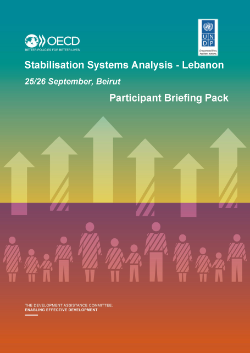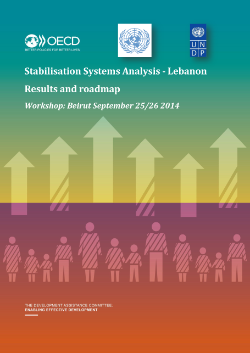Liban
Resilience to support stabilisation in Lebanon
Lebanon is currently facing a range of shocks related to the crisis in Syria – demographic pressures from a massive influx of refugees, economic and trade shocks, and other pressures that could potentially lead to social unrest in Lebanon itself. However, Lebanese society has, so far, proven very resilient in the face of this complicated risk landscape.
This systems analysis workshop set out to help humanitarian, stabilisation and development actors, both Lebanese and from the international community, determine how to support vulnerable communities and institutions in Lebanon, focusing on the resources and capacities that are needed to absorb, adapt and transform in the face risks related to the crisis in Syria.
The analysis also helped the different actors identify the key assets that enable the well-being of Lebanese society – what society needs to be resilient to the risks it currently faces. Participants also identified the current strengths of the Lebanese system – those key factors that have allowed Lebanon to remain resilient in the face of major shocks; shocks that most other countries would struggle to absorb.
To do this, experts in risks, experts in systems and key decision makers from the government, NGOs, the United Nations and donors worked together for two days in Beirut to:
- Share a vision of current and future risks linked with the Syrian crisis and their impact on the well-being of vulnerable communities and institutions in Lebanon; and
- Develop a road map to boost the stabilisation of the well-being of vulnerable communities and institutions in Lebanon
A briefing pack was sent in advance to participants, with preliminary findings about the risk landscape in Lebanon.
The analysis was structured around the OECD resilience systems analysis methodology.
| Briefing Pack | Roadmap to stabilisation | |
 |
 |
Documents connexes
- Conflict and fragility